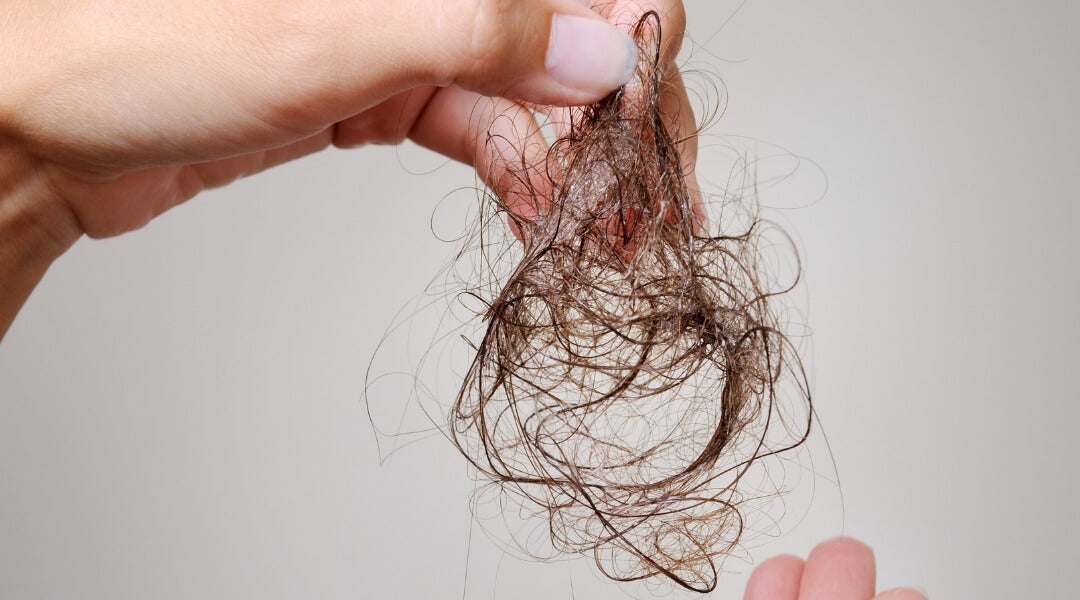What is cellulose acetate?
Cellulose acetate is a material made from plant fibers, primarily derived from wood pulp and cotton. Unlike traditional plastics, which are produced from fossil fuels, cellulose acetate comes from renewable resources.
This cellulose is modified to create a strong, flexible material that is ideal for fashion accessories such as glasses, jewelry and hair clips. But despite the fact that cellulose acetate is based on natural fibers, it is still a form of plastic. This is important to emphasize. Nevertheless, it is an interesting alternative in our search for more environmentally friendly materials.
The benefits of cellulose acetate
Choosing cellulose acetate has a number of advantages that perfectly match our values, such as it being sustainable, made from renewable raw materials and having a lower CO2 footprint (compared to traditional plastics).
Naturally derived
Unlike fully synthetic plastics such as polyethylene and polypropylene, which are made from petroleum, cellulose acetate is derived from plants. This is a major advantage in terms of sustainability, as using renewable raw materials helps reduce our dependence on fossil fuels such as oil and gas.
Sustainability
As demand for oil as a fuel declines due to the growth of electric vehicles and other renewable energy sources, there is a chance that the oil industry will increasingly turn to the production of plastics. Plastics could be the new goldmine for the oil sector.
This is where cellulose acetate comes in. This material is extracted from natural sources, a tree and a plant. Two natural, renewable and inexhaustible raw materials that distinguish themselves from the fossil origin of traditional plastics. Cellulose acetate is therefore a promising alternative.
Stronger than plastic
In addition, cellulose acetate is a very strong and durable material. This means that this type of plastic does not easily break down or get damaged, even after intensive use. It extends the life of the product, which in itself is also a form of sustainability.
Recyclable?
Okay, time for the downside. While cellulose acetate is much better than some other plastics, it is currently not truly recyclable or biodegradable. While cellulose acetate is derived from natural resources and is biodegradable under the right conditions, such as industrial composting, in practice it remains difficult to properly process the material without dedicated infrastructure.
So yes, it is better for the planet, but it is not a panacea. If it ends up in the wrong place, it can be just as harmful as other types of plastic. That is why we do not want to pretend that this material is the ultimate eco-solution. It is a step in the right direction, but certainly not the end of our quest for sustainability.
Our responsibility
Science does not stand still. Research is currently being done into bacteria that can break down cellulose acetate. These developments are promising, but it will take time before they can be applied on a large scale.
At Mellon, we believe that you, like us, want to know what’s really in your products. No hidden ingredients, no secret formulas – just honesty. Cellulose acetate isn’t perfect, but it’s a step in the right direction. By choosing this material, we’re helping to develop more sustainable alternatives to plastic. It’s more durable, more beautiful and longer lasting than regular plastic materials, but it’s not yet the perfect eco-friendly material. We’re always looking for ways to make our products more sustainable, without compromising on quality. It’s a step in the green direction, so to speak. 😉
So if you’re looking for a hair clip that’s stylish and a little bit better for the planet, you’ve come to the right place. And who knows, maybe in a few years we’ll be able to offer fully eco-responsible clips. But for now, we’re proud of where we are and will continue to work on improvements.




